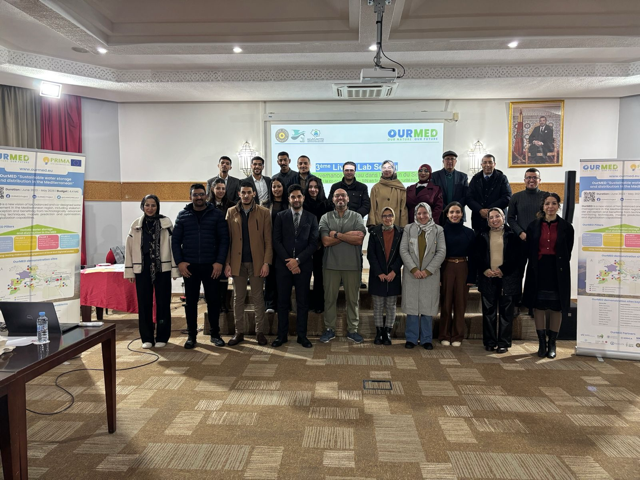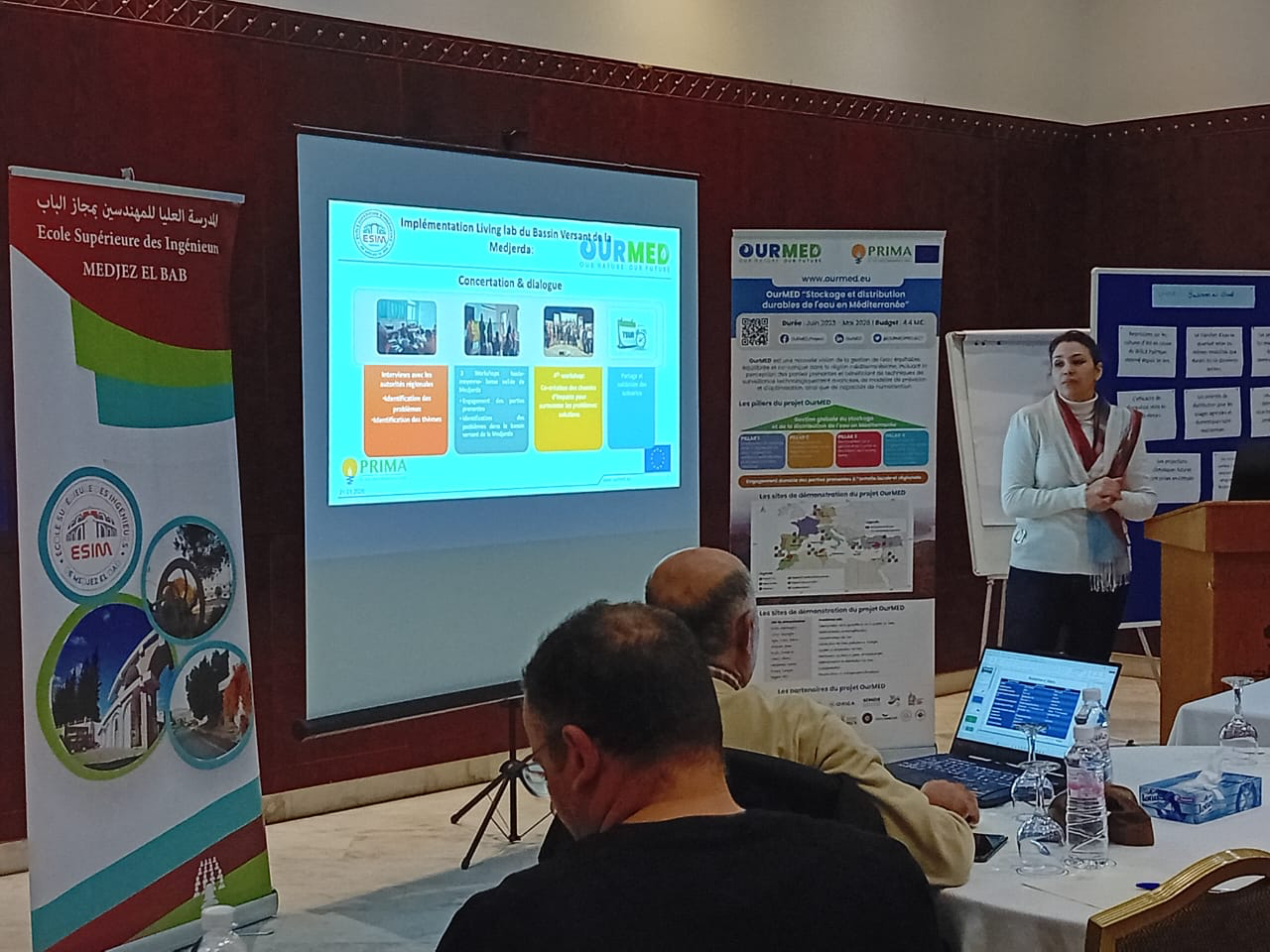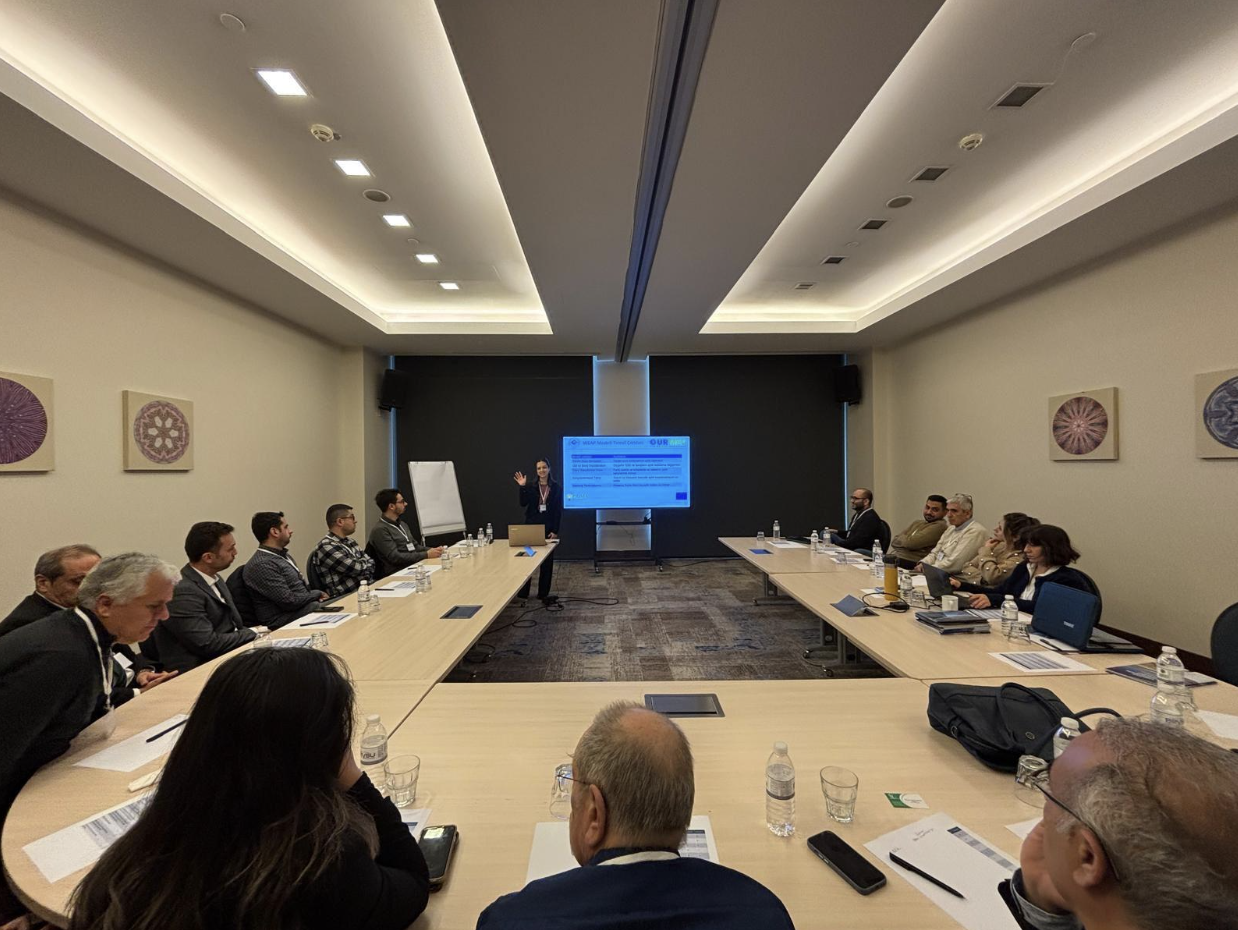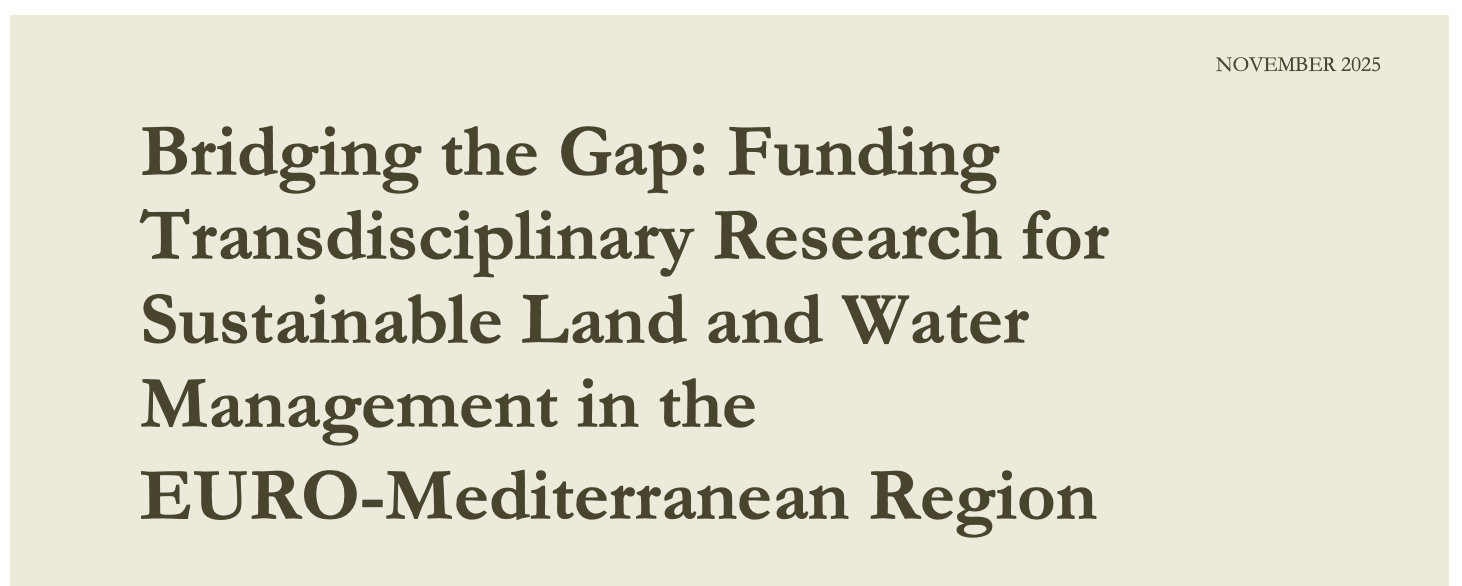The 3rd Living Lab in the Sebou Basin was held on February 3rd under excellent conditions and brought together 25 participants representing key stakeholders from across the Sebou basin.
This collaborative workshop provided a structured space for dialogue and collective deliberation, building on shared data and the DPSIR analysis to discuss, align and prioritise Nature-based Solutions aimed at strengthening water security and freshwater ecosystem management. The Living Lab once again highlighted the importance of science–stakeholder collaboration and collective intelligence in advancing integrated and sustainable water governance at the basin scale.








